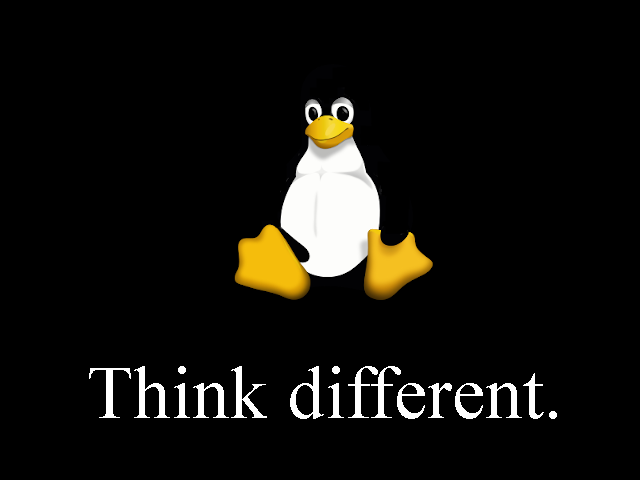Some of the earlier computers of the 20th centure were analog computers, not digital.
At some point analog died however, and "computer" basically by default started meaning just "digital computer".
As of the 2010's and forward, with the limit of Moore's law and the rise of machine learning, people have started looking again into analog computing as a possile way forward. A key insight is that huge floating point precision is not that crucial in many deep learning applications, e.g. many new digital designs have tried 16-bit floating point as opposed to the more traditional 32-bit minium. Some papers are even looking into 8-bit: dl.acm.org/doi/10.5555/3327757.3327866
As an example, the Lightmatter company was trying to implement silicon photonics-based matrix multiplication.
A general intuition behind this type of development is that the human brain, the holy grail of machine learning, is itself an analog computer.
- owns the entire stack and creates high quality highly optimized systems
- creates closed lock-in systems without inter-operability and actively fights users from owning their devices
- do they give back enough to open source, or do they leech mostly?
Of course, this only made sense when Apple was more of an underdog to IBM, and Ciro Santilli greatly admires their defiance of the norm.
As of 2020 however, Apple is kind of on the top of the mobile world, and Think different simply makes no sense anymore, notably because it relies on closed source offline software used by millions.
it's Popular Now It Sucks comes to mind.
This is a trap every company that prides itself on it's "alternative culture" sets for itself. If they succeed, they could become the norm.
1976 Think different. 2011 Think mainstream
. Cropped from wallpapersafari.com/w/RqYUEj.1984 Macintosh advertisement by Apple (1984)
Source. This ad suggests that Apple was the new thinker that would destroy IBM, as Steve Jobs said it himself when introducing the ad: www.youtube.com/watch?v=zlQvMp5rB6g. And then Apple became IBM in the 2000's starting with the launch of the iPod and then leading up to the iPhone.Because the people who are crazy enough to think they can change the world are the ones who do.
Pinned article: Introduction to the OurBigBook Project
Welcome to the OurBigBook Project! Our goal is to create the perfect publishing platform for STEM subjects, and get university-level students to write the best free STEM tutorials ever.
Everyone is welcome to create an account and play with the site: ourbigbook.com/go/register. We belive that students themselves can write amazing tutorials, but teachers are welcome too. You can write about anything you want, it doesn't have to be STEM or even educational. Silly test content is very welcome and you won't be penalized in any way. Just keep it legal!
Intro to OurBigBook
. Source. We have two killer features:
- topics: topics group articles by different users with the same title, e.g. here is the topic for the "Fundamental Theorem of Calculus" ourbigbook.com/go/topic/fundamental-theorem-of-calculusArticles of different users are sorted by upvote within each article page. This feature is a bit like:
- a Wikipedia where each user can have their own version of each article
- a Q&A website like Stack Overflow, where multiple people can give their views on a given topic, and the best ones are sorted by upvote. Except you don't need to wait for someone to ask first, and any topic goes, no matter how narrow or broad
This feature makes it possible for readers to find better explanations of any topic created by other writers. And it allows writers to create an explanation in a place that readers might actually find it.Figure 1. Screenshot of the "Derivative" topic page. View it live at: ourbigbook.com/go/topic/derivativeVideo 2. OurBigBook Web topics demo. Source. - local editing: you can store all your personal knowledge base content locally in a plaintext markup format that can be edited locally and published either:This way you can be sure that even if OurBigBook.com were to go down one day (which we have no plans to do as it is quite cheap to host!), your content will still be perfectly readable as a static site.
- to OurBigBook.com to get awesome multi-user features like topics and likes
- as HTML files to a static website, which you can host yourself for free on many external providers like GitHub Pages, and remain in full control
Figure 3. Visual Studio Code extension installation.Figure 4. Visual Studio Code extension tree navigation.Figure 5. Web editor. You can also edit articles on the Web editor without installing anything locally.Video 3. Edit locally and publish demo. Source. This shows editing OurBigBook Markup and publishing it using the Visual Studio Code extension.Video 4. OurBigBook Visual Studio Code extension editing and navigation demo. Source. - Infinitely deep tables of contents:
All our software is open source and hosted at: github.com/ourbigbook/ourbigbook
Further documentation can be found at: docs.ourbigbook.com
Feel free to reach our to us for any help or suggestions: docs.ourbigbook.com/#contact









